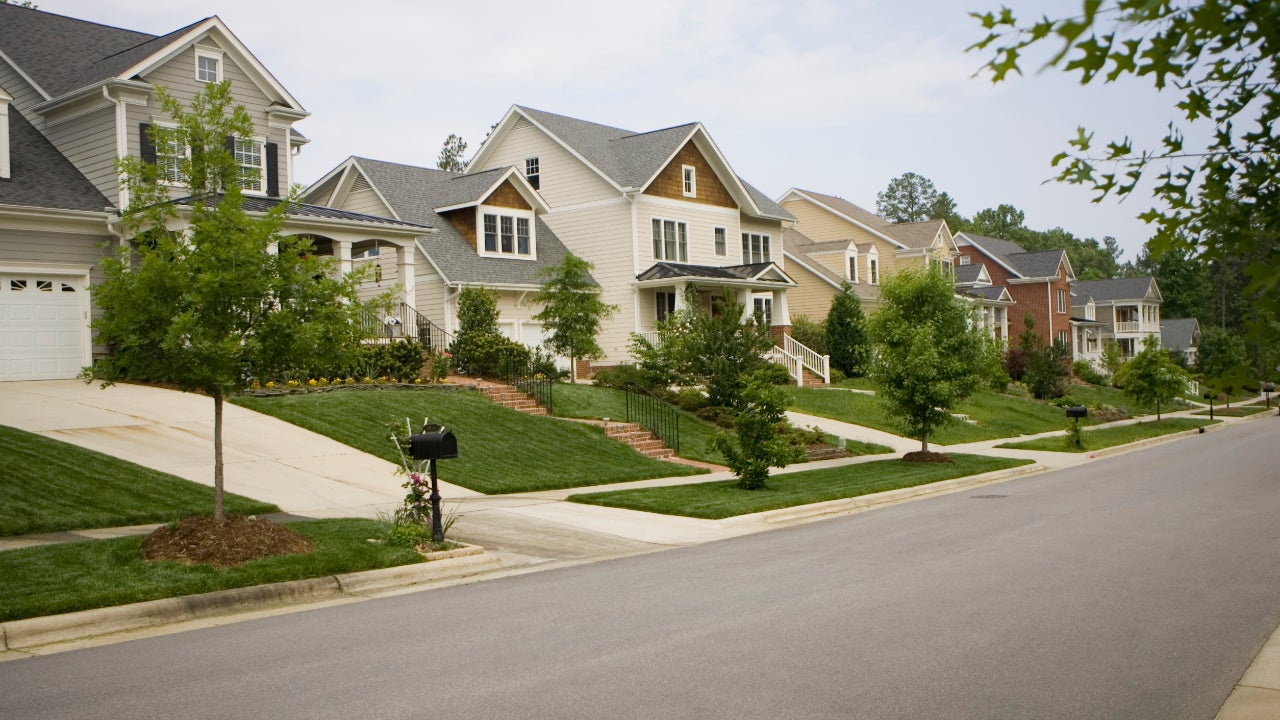The Duty of House Owners in Forming HOA Policies
In the realm of homeowners' organizations (HOAs), the duty of house owners fit policies holds substantial significance. Homeowners are not just residents but energetic stakeholders in the area they live in, with a vested rate of interest in the policies and policies that govern their daily lives. Recognizing just how property owners can add and influence to HOA plans is vital for promoting a harmonious living setting. By checking out the avenues through which house owners can affect decision-making processes, we reveal a dynamic interaction that forms the extremely essence of area living. Remain tuned to unravel the detailed web of homeowner involvement and its effect on forming HOA policies.
Significance of Property Owner Interaction
Property owner interaction plays a vital function in forming the policies and choices of house owners' associations (HOAs) When home owners actively take part in the decision-making procedures of their HOA, they contribute varied perspectives that can cause even more well-shaped and inclusive plans. Engaged property owners are most likely to stay notified concerning HOA matters, participate in conferences, and offer beneficial comments on proposed policies. Their involvement helps guarantee that plans show the demands and choices of the area they stand for.
Additionally, property owner engagement cultivates a sense of possession and accountability within the area. Furthermore, involved house owners are much more most likely to support HOA campaigns, which can lead to smoother application and greater total success.
Ways to Influence HOA Plans
Efficient participation in home owners' association (HOA) conferences and committees provides homeowners chances to influence and form HOA policies. Among the most direct means property owners can affect HOA policies is by proactively taking part and attending in HOA conferences. By voicing problems, suggesting recommendations, and engaging in conversations during these conferences, homeowners can straight affect the decisions made by the HOA board. Furthermore, home owners can consider competing placements on the HOA board or committees themselves. By ending up being board participants or board leaders, homeowners can directly influence the growth and implementation of HOA policies.
In addition, homeowners can work together with their next-door neighbors to develop a joined front when supporting for specific policy changes or initiatives. By organizing petitions, carrying out surveys, or holding neighborhood conferences, homeowners can show the degree of support for their recommended policies and enhance their possibilities of affecting the HOA's choices. Inevitably, by proactively participating, involving with fellow homeowners, and tackling leadership roles within the HOA, homeowners can effectively shape and affect HOA policies to much better mirror the requirements and preferences of the area.

Effect of Property Owner Engagement
The active involvement of residents in home owners' association (HOA) tasks considerably affects the choices and policies controling the community. When house owners join HOA conferences, give comments on recommended policies, and involve in discussions with the board members, their input can shape the direction of the neighborhood. Homeowner involvement ensures that the HOA board thinks about a varied range of point of views prior to making choices that affect the entire area.
Furthermore, property owner engagement can bring about enhanced transparency within the HOA. By proactively involving in the decision-making procedure, residents can hold the board responsible for their activities and make visite site certain that plans are implemented relatively and in the ideal passion of the community overall.
Furthermore, when house owners proactively take part in shaping HOA policies, they feel a greater sense of ownership and pride in their community (hoa san antonio). This sense of involvement promotes a stronger sense of neighborhood and motivates citizens to collaborate in the direction of common goals, eventually producing a much more unified and preferable living atmosphere for all homeowners

Advantages of Active Property Owner Involvement
Energetic involvement by citizens in house owners' association tasks adds substantially to the enhancement of area administration and communication. When house owners actively participate in HOA affairs, they bring useful insights and varied point of views to the decision-making process. This participation fosters a feeling of ownership and duty among homeowners, causing a more natural and unified area.
Additionally, energetic property owner engagement assists to ensure that HOA plans align with the requirements and preferences of the neighborhood participants - hoa san antonio. By voicing their point of views and issues, residents can influence the growth of guidelines and laws that promote harmony and health within the neighborhood. This collective strategy not only enhances area bonds but also improves the total quality of life for house owners
Additionally, active home owner participation can lead to enhanced openness and liability within the homeowners' association. When locals are proactively taken part in the administration procedure, there is greater oversight and scrutiny of decision-making, which can assist protect against possible conflicts and make certain equitable and page fair therapy for all members. Inevitably, the advantages of energetic house owner participation expand past individual houses to develop an extra vibrant and thriving area.
:max_bytes(150000):strip_icc()/homeowners-association-fee-hoa.asp_final-280ef47a46a84320b09f0c12e47896c1.png)
Developing a Community-Driven HOA
Provided the significance of property owner involvement in forming HOA plans, promoting a community-driven method is vital for the sustainable administration and growth of the community. A community-driven HOA empowers homeowners to proactively join decision-making processes, making certain that policies reflect the varied requirements and preferences of the neighborhood. By encouraging open interaction and partnership between home owners and the HOA board, a feeling of shared duty and ownership is grown, causing increased contentment and harmony within the neighborhood.
Producing a community-driven HOA involves developing systems for homeowner comments, such as surveys, city center meetings, or suggestion boxes, to collect input on essential concerns and possible policy modifications. Additionally, promoting transparency in HOA procedures and decision-making processes fosters trust fund and responsibility among citizens. By valuing homeowner viewpoints and engaging them in the administration of the neighborhood, a community-driven HOA can boost general resident contentment, promote a feeling of belonging, and add to the long-lasting well-being of the community.
Conclusion

In conclusion, energetic home owner engagement plays a critical function in forming HOA policies. Producing a community-driven HOA calls for ongoing communication and teamwork in between homeowners and the association to make sure plans reflect the needs and browse around here preferences of the neighborhood.
In the world of property owners' organizations (HOAs), the duty of homeowners in shaping plans holds substantial relevance.Homeowner interaction plays a vital duty in shaping the policies and decisions of house owners' organizations (HOAs)Efficient engagement in homeowners' association (HOA) boards and meetings uses locals chances to influence and shape HOA plans. Inevitably, by proactively getting involved, involving with fellow homeowners, and taking on management duties within the HOA, home owners can properly shape and influence HOA policies to better mirror the demands and choices of the neighborhood.
In addition, energetic house owner involvement can lead to enhanced transparency and liability within the home owners' organization.